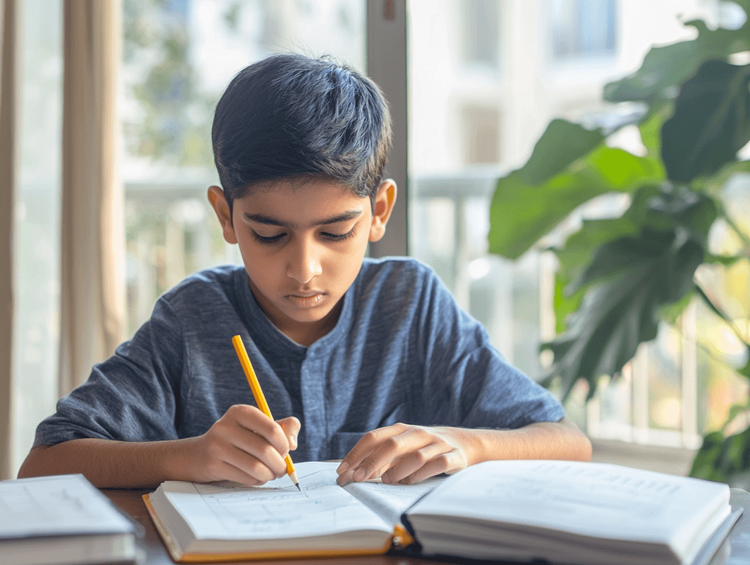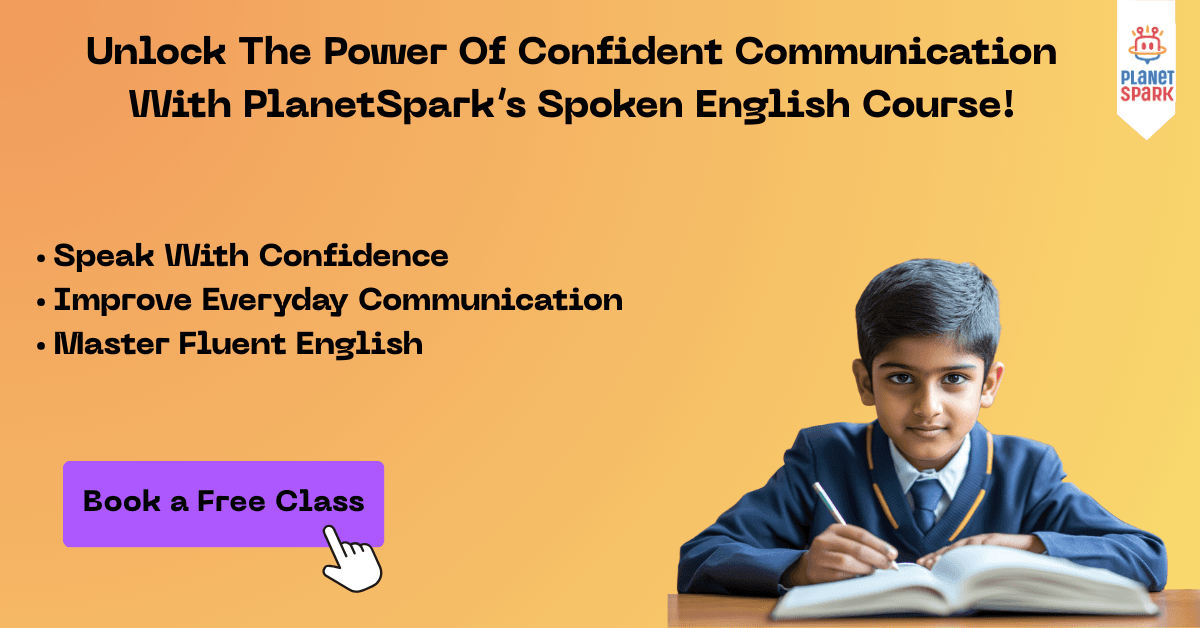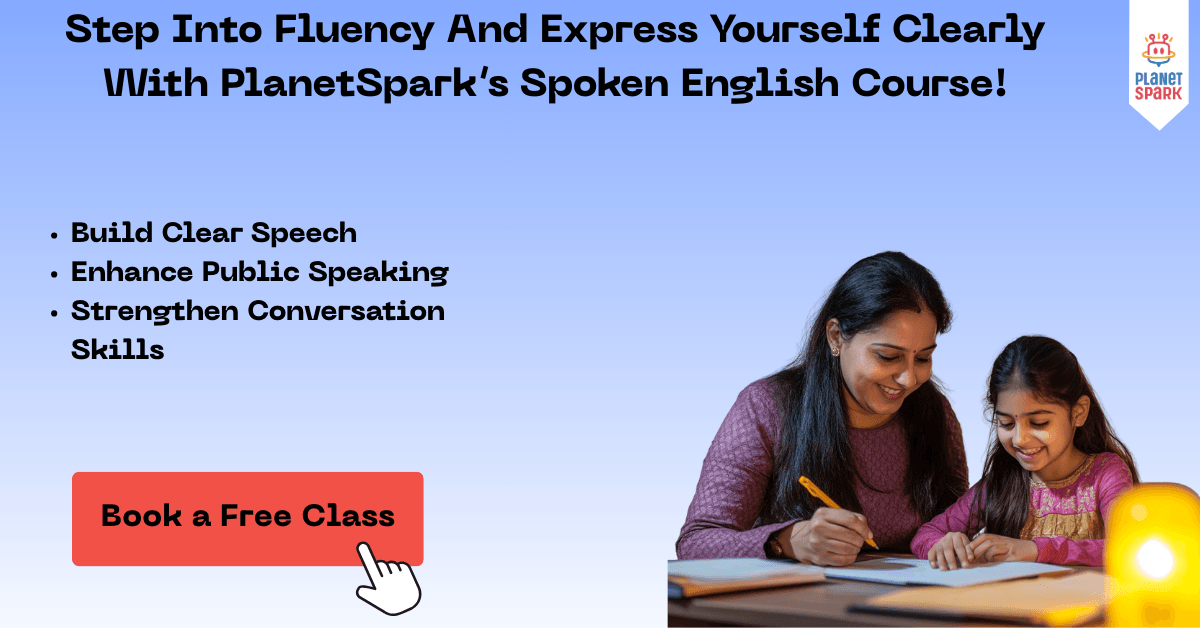How Social Media Affects Mental Health in Children
Last Updated At: 23 Sep 2025
11 min read

Table of Contents
- The Scale of Social Media Use Today
- The Positive Effects of Social Media on Mental Health
- The Negative Impact of Social Media on Mental Health
- Digital Addiction: The Silent Epidemic
- What Can Be Done?
- Striking a Healthy Balance: Tips for Healthy Social Media Us
- Explore PlanetSpark’s Creative Writing Courses
- FAQs
In today’s digitally driven world, social media has become deeply integrated into our daily routines. Platforms like Instagram, Facebook, X (formerly Twitter), TikTok, and Snapchat serve as windows into people’s lives, often portraying perfectly filtered moments and curated experiences. For the newest generation of adults, and even children, scrolling through social feeds for hours each day has become second nature. The average person spends more than 8 hours daily across various social apps. But while social media can offer a sense of connection and inspiration, it also raises pressing questions: What does all this online interaction mean for our mental health? Are we becoming more connected or more isolated than ever?
As we explore both the benefits and drawbacks of social media usage, it becomes evident that this digital landscape plays a complex role in shaping our psychological well-being. For young minds especially, navigating this virtual ecosystem requires the ability to express oneself clearly, cope with online challenges, and maintain a strong sense of self. That’s where PlanetSpark’s Creative Writing Courses come in. Designed for kids and teens, these courses help build essential writing and communication skills to empower children in both real and digital spaces. From storytelling and journaling to grammar and expression, PlanetSpark prepares young learners to thrive in a world where clear, confident communication is more important than ever.
The Scale of Social Media Use Today
Understanding the mental health effects of social media begins with knowing how widely and frequently it’s used.
As of 2024, there are 4.95 billion active social media users globally, about 62% of the world’s population (DataReportal).
The global average time spent on social media is 2 hours and 24 minutes per day, while in India, it’s 2 hours and 36 minutes (Statista).
In India alone, there are over 470 million active users, with Instagram, WhatsApp, and YouTube being the most used platforms among people aged 12–24.
Such heavy usage means that social media doesn’t just reflect mental health trends, it shapes them.
The Positive Effects of Social Media on Mental Health
Despite growing concern, social media isn’t inherently harmful. It can foster meaningful connections, emotional support, and mental health awareness when used mindfully.
1. Social Support and Community Building
A 2022 report by the Royal Society for Public Health (RSPH) found that 70% of young people felt more connected and less isolated due to social media.
55% said social media helped them express creativity and find communities of like-minded individuals.
For teens in smaller towns or those who feel marginalized, finding a niche group online can be life-changing. LGBTQ+ communities, mental health support groups, and hobby-based forums offer safe spaces that are often unavailable offline.
2. Increased Mental Health Awareness
Campaigns on Instagram and X (formerly Twitter) have helped boost mental health awareness by 34% among users aged 16–24, according to the Mental Health Foundation.
A 2023 Deloitte survey revealed that 62% of Gen Z users believe social media plays a crucial role in spreading mental health information.
Whether it’s through content creators talking openly about anxiety or viral hashtags like #SelfCareSunday, the stigma around mental health is slowly being dismantled.
3. Access to Help and Resources
According to the National Alliance on Mental Illness (NAMI), 1 in 5 teens has used social media to reach out for mental health support.
Mental health apps like Calm and Headspace, heavily promoted on platforms like YouTube and Instagram, saw a 300% surge in downloads post-pandemic.
In regions with limited access to therapists or support groups, such visibility can offer a starting point for healing.

The Negative Impact of Social Media on Mental Health
Unfortunately, not all interactions on social media are positive. The same features that enable connection can also create comparison, pressure, and harm, especially in young, impressionable users.
1. Increased Risk of Depression and Anxiety
A 2023 study from the University of North Carolina found that teens who used social media for more than 3 hours/day were twice as likely to develop symptoms of depression and anxiety.
A study by Lancet Child & Adolescent Health linked frequent Instagram use to a 13% increase in depressive symptoms among girls aged 13–16.
India isn’t immune either. A 2023 study in the Indian Journal of Psychiatry noted that 38% of adolescents who overused social media showed signs of moderate to severe anxiety.
2. Cyberbullying and Online Harassment
According to UNICEF, 1 in 3 young people across 30 countries have reported being cyberbullied.
In India, the Microsoft Global Youth Online Behavior Survey showed that 53% of children aged 8–17 experienced online bullying, among the highest rates in the world.
This cyberbullying often goes unreported, leading to long-term psychological scars, including PTSD and social withdrawal.
3. Negative Body Image and Comparison Culture
Internal research from Facebook (now Meta), known as the Facebook Papers, revealed that Instagram worsened body image for 1 in 3 teen girls.
40% of users reported feeling unattractive after scrolling through curated posts, while 32% said social media made them dissatisfied with their appearance.
With influencers setting unrealistic beauty standards through filters and edits, users, especially teenagers;face mounting pressure to conform.
4. Fear of Missing Out (FOMO)
A Harvard University study found that 56% of social media users between the ages of 16–24 experience FOMO regularly.
This fear leads to poor sleep, increased anxiety, and inability to focus, especially among students during exams.
The illusion that others are constantly having more fun or achieving more can make users feel inadequate or isolated.
5. Sleep Deprivation and Academic Decline
The Sleep Foundation reports that teens using social media for over 2 hours/day are 68% more likely to sleep less than 6 hours a night.
The AIIMS Mental Health Survey (India) found that children who spent 4+ hours/day on digital platforms were three times more likely to suffer from low self-esteem and sleep issues.
Excessive screen time, especially before bed, suppresses melatonin, delaying sleep and worsening concentration the next day.
Unlock your child’s creativity and critical thinking with PlanetSpark’s Creative Writing Course. Sign up for a free trial session now.
Digital Addiction: The Silent Epidemic
While social media addiction isn’t classified as a clinical disorder yet, the symptoms resemble behavioral addictions.
A 2023 University of Pennsylvania study showed that reducing usage to 30 minutes/day led to significant drops in anxiety, loneliness, and depression.
The American Psychological Association says that 27% of youth now meet the criteria for “problematic social media use.”
Teens often feel compelled to check notifications, scroll endlessly, and seek validation via likes and comments, affecting productivity and emotional regulation.
A Common Sense Media study revealed:
50% of teens are distracted from homework due to social media.
37% say they can’t go more than 3 hours without checking their phones.
What Can Be Done?
1. Digital Literacy and Awareness
Teaching children and teens how to use social media responsibly is key. This includes understanding what to post, whom to trust, and when to unplug.
2. Parental Involvement
Monitoring screen time and encouraging open conversations about online experiences helps reduce the risk of harm. Tools like screen-time apps or content filters can support healthier habits.
3. Mental Health Education in Schools
Introducing mental health education into the school curriculum can foster early detection, peer support, and self-awareness.
4. Setting Personal Boundaries
Taking regular “social media detoxes,” turning off notifications, or scheduling “no phone” hours can greatly benefit mental health.

Striking a Healthy Balance: Tips for Healthy Social Media Use
The goal isn’t to eliminate social media but to use it in ways that protect mental well-being. Here are strategies to help achieve that balance:
Limit screen time with digital wellness apps
Curate your feed to follow accounts that uplift and inspire
Avoid doomscrolling and take intentional digital breaks
Speak up when online experiences feel overwhelming
Encourage open conversations about what kids see online
Use social media as a tool, not a crutch, for validation
Parents, teachers, and guardians also play a vital role in modeling and monitoring digital behavior.
Looking for a fun way to boost your child’s writing skills? Try PlanetSpark’s Creative Writing Course with a free trial session.
Explore PlanetSpark’s Creative Writing Courses
While social media shapes how we interact with the world, it’s equally important to equip children with skills to express themselves clearly, safely, and meaningfully. That’s exactly what PlanetSpark’s Creative Writing Courses do. Here’s how they help:
1:1 Personal Trainers for Every Child
Certified trainers deliver personalised, one-on-one live classes
Immediate feedback fosters fast improvement
Sessions focus on creative writing, storytelling, grammar, and fluency
Personalised Curriculum and Learning Roadmap
Learning journeys are custom-built after assessing each child
Targets grammar gaps, fluency issues, and vocabulary weaknesses
Roadmaps are updated continuously to track evolving goals
SparkX – AI-Enabled Video Analysis Tool
Students upload speeches and stories for AI-powered evaluation
Tracks clarity, body language, grammar, and delivery
Offers a detailed performance report for measurable progress
AI-Led Practice Sessions
Children practise storytelling and speech exercises with an AI coach
Instant feedback on grammar, fluency, and pacing
Promotes independent learning outside live classes
Spark Diary – Digital Journaling for Young Writers
Encourages daily writing of reflections, poems, and short stories
Improves structure, clarity, and creativity over time
Builds long-term writing consistency
Gamified Learning Tools
Antonyms Quiz, Spell Knockout, Grammar Guru, and Word Wisdom
Makes grammar and vocabulary fun through games
Daily challenges ensure consistent engagement
Structured Parent-Teacher Meetings
Regular PTMs keep parents involved
Real-time performance updates shared
Joint goal-setting supports progress
Comprehensive Progress Reports
Detailed insights into writing quality, thinking skills, and delivery
Custom trainer notes and action plans included
Helps parents track every aspect of development
Exclusive Learning Clubs and Communities
Join clubs for writing, storytelling, poetry, debate, podcasting, and more
Build confidence, collaboration, and public speaking skills
Sparkline – Safe Social Sharing for Kids
Moderated internal platform for sharing speeches, reflections, and stories
Builds digital confidence in a secure environment
Contests, Showcases, and Recognition
Regular storytelling competitions and open mics
Celebrates student achievements with certificates and showcases
SparkBee and SparkShop for Daily Practice
SparkBee offers engaging grammar and spelling quizzes
SparkShop provides easy-to-understand eBooks for grammar, reading, and writing
Makes daily learning fun and accessible
Help your child turn thoughts into impactful stories. PlanetSpark offers a free trial class in Creative Writing to get started.
Conclusion
Social media has transformed how we connect and communicate, but excessive or uncritical use can harm mental health, especially in children. Issues like anxiety, low self-esteem, and distorted reality are common side effects. That’s why developing media literacy, emotional awareness, and critical thinking is crucial to ensure balanced online engagement and emotional well-being.
PlanetSpark supports this development through its Creative Writing Courses. These programs do more than enhance storytelling, they help children process emotions, think deeply, and express themselves clearly. With interactive lessons, expert feedback, and real-world writing practice, kids gain the tools to communicate confidently and responsibly, both on social media and beyond.
Discover how PlanetSpark helps children write better, think sharply, and express more. Register for a free Creative Writing class now.
FAQs
1. How can social media lead to depression?
Social media can trigger feelings of inadequacy when people compare their lives to the seemingly perfect lives of others. The lack of genuine interaction and validation can make users feel isolated, anxious, or depressed.
2. What are the most common negative effects of social media?
The major concerns include cyberbullying, body image issues, sleep disruption, social isolation, and anxiety stemming from unrealistic comparisons.
3. Can social media improve mental health?
Yes, when used with intention. It can help users connect with support groups, access helpful resources, raise awareness, and combat loneliness through positive interactions.
4. Is it possible to use social media mindfully?
Absolutely. Setting time limits, curating your feed, avoiding negative content, and taking digital detoxes can all contribute to a healthy relationship with social platforms.
5. How can PlanetSpark help children use social media safely?
PlanetSpark teaches communication, emotional articulation, and digital confidence through creative writing and speaking courses, ensuring children know how to express themselves safely and meaningfully online.
Q6. How does PlanetSpark’s program nurture creativity while also supporting mental well-being?
Through interactive activities, brainstorming, and imaginative assignments, children not only enhance writing skills but also develop self-awareness and a positive mindset.
7. Is there a trial class available at PlanetSpark?
Yes. PlanetSpark offers a free trial class so parents and students can explore the platform and understand its unique teaching methodology before enrolling.
Personalized Communication Report
Record a video to get a AI generated personalized communication report for your child
Select Learner's Class

Hi There, want to try these
tips for your child with
LIVE with our expert coach?
Let's check your child's
English fluency
